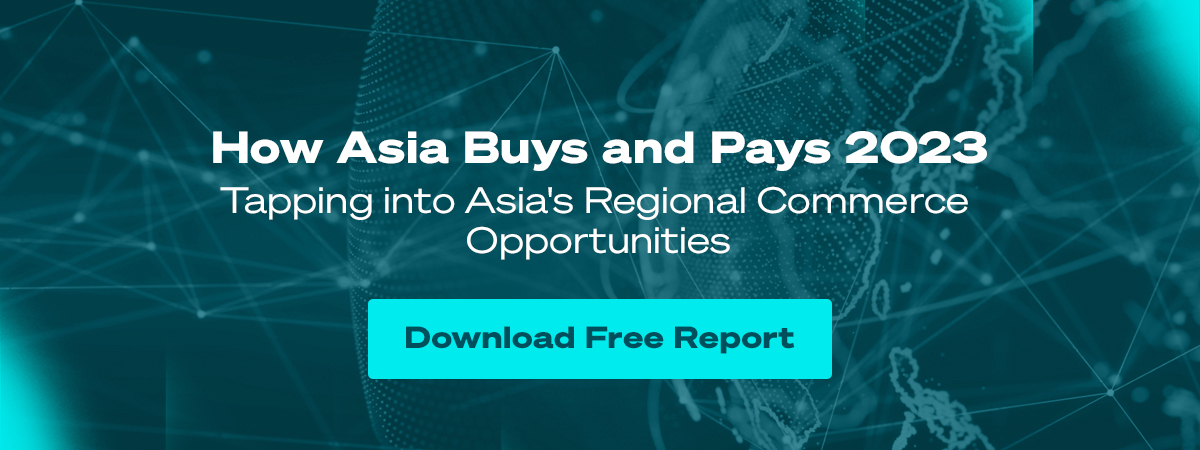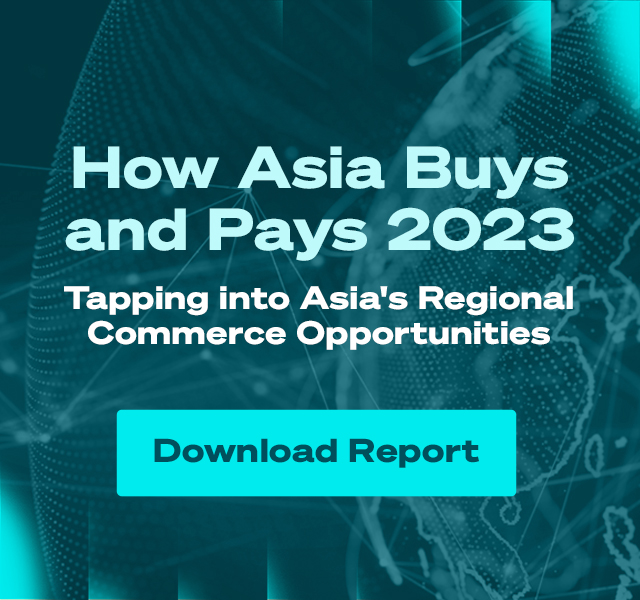
Payments Powerhouses: Driving Digital Transformation in Thailand
Payments Powerhouses is a monthly series featuring trailblazers on Southeast Asia’s fintech scene. In the third instalment of the series, we speak with Axel Winter, who has been a driving force in digital transformation for over 25 years.
His extensive international career has featured senior leadership roles in business and technology strategy for the likes of GE Capital, Accenture, Cisco Systems, Standard Chartered Bank, and more recently Central Retail. Currently, he’s Chief Digital Officer at Bangkok’s leading shopping mall operator, Siam Piwat Group.
We chat with Axel to gain some insights from his vast experience as an innovative leader in the digital space.
Your LinkedIn profile says you transform big corporations into startups. Can you tell us more?
Axel Winter: This thinking stems from what I view as a key tenet of a successful organisation. Successful companies should know their inner workings, empower teams to make decisions and solve issues fast. Those principles are usually characteristic of smaller startups, but should also be applied to large corporations.
Take Standard Chartered, for instance. During my time there, I was able to help the bank become fully data-driven over time. We learned, made mistakes, and became better incrementally. It's one of the few multinationals that has embraced data so comprehensively, and they’re now one of the best players in the world in financial services. Being data-driven helped them make smart, fast decisions - just like a startup.
On the topic of digital transformation, what strategies are required by corporations or companies to get started?
Axel Winter: In some ways, the age or time to embark on digital transformation has passed.
What remains more critical than ever is creating new partnerships to build digital products and services designed around what consumers want.
Now what do you need in order to drive it? Within any organisation, technology must be treated as a top priority, not just as a supporting or enabling function, but a core part of the business with a direct report to the leadership team.
Many consultancy companies are telling corporations that the answer is a one- or two-year transformation plan, where they spend most of the budget in the first year implementing a new platform or app, and then maintain it going forward on a smaller retainer. But this model always under delivers.
To be successful when creating digital products – and 2C2P is one of the best examples here – an organisation needs to make continuous investment in technology alongside continuous upgrades, adaptations and improvements.
Decisiveness and a strong focus on execution are also both critically important. Businesses cannot indefinitely review and discuss – there needs to be a clear path to decision-making, otherwise the market and competitors move forward without you.
Another essential requirement is capability building. You need certain capabilities in-house and less reliance on outsourcing. I think startups might be less prone to this compared to corporates who often fall into the trap of believing that technology solutions can simply be bought from a consulting company or vendor. It can be done, but there will be downsides. How do you remain a fast, agile mover if you need to arrange an RFP which can take valuable time and resources?
How has COVID-19 affected digital strategies?
Axel Winter: The digital space clearly has accelerated. Because people are at home more, they need to use digital tools. Of course, some people like to go to the market and look at groceries before they buy, but times change and people do what they have to do, so they use the apps.
As a service provider, large-scale usage brings new learnings, and good organisations use these learnings to improve.
Every leader and startup I've talked to around the globe during the last 18 months agrees that Covid-19 has been a litmus test for their digital capabilities.
In terms of behaviour changes, consumers want to be more engaged with the companies they are buying services from, while purchasing behaviour has clearly shifted to shopping online at home. During the pandemic, we’ve also seen large numbers of people losing their jobs, either permanently or temporarily, so they have less disposable income creating demand for less expensive products.
So with many significant changes taking place, I think it is an important time now to pause and consider what we can do better. What else can we do? How can we team up more effectively with technology partners, like 2C2P?
Can you tell us about any innovations you’ve recently introduced?
Axel Winter: During the pandemic, it was all about realigning to the new reality. For example, we brought in call-and-shop for customers who felt more comfortable calling in their orders, rather than using chat tools. We also had a drive-through scheme when the department stores and malls were closed during lockdown, so customers could drive their car through the mall’s parking lot to pick up their groceries. All the digital teams pulled together extremely well to roll out these features quickly. Everybody understood that it was important both for our customers and the company.
Another interesting project we launched was called “C Coin”. This was a pure employee-facing project targeted at employees, where we encouraged positive actions and tasks through a loyalty programme. Through completing these set tasks or challenges, employees get rewarded with mall vouchers and other incentives. This was honestly a great initiative by the team and it’s still live today.
What’s your view on the evolving payments space?
Axel Winter: It would be good if this division between online and offline payments would disappear. At the beginning of the pandemic, I noticed how Grabfood drivers were able to receive prompt payment on the spot, with customers scanning a QR code and the transfer appearing in the driver’s account instantly. It was interesting to see how much power this new digital payments process already had, and how rapidly we had shifted from real-life payments with cash.
In Asia, people are adopting new payment methods very fast. We now have many competitive options, so someone who sells online has to set up multiple payment methods. So I think these payment streams should converge with just two or three digital products. However, cash will not go away entirely in the next five years – in many markets, it remains the backbone.
I'm glad that a lot of organisations are now moving to OTP via mobile banking apps. But there remains a strong case for making payments more seamless and easier, in-store and also online. For me this is critical, but in my opinion, it does have to be super secure and seamless.
Finally, any learnings you can share about being a successful leader?
Axel Winter: I strongly believe that you learn and grow from making mistakes. And I can say that I have definitely benefited from this approach!
. . .
Payments Powerhouses is a monthly editorial series interviewing the movers and shakers of the payments and wider fintech industry, in Southeast Asia and beyond. If you’d like to be featured on Payments Powerhouses, reach out to us here.

